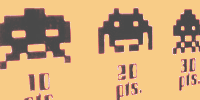



COMM 408.001 / 840.001 -- Special Topics in Social Science; Fall 2013
Prof. Sandvig, University of Michigan
http://408.niftyc.org/
Announcements
- Note the FIELD TRIP on 25 November (Monday).
About the Class
Instructor
Prof. Christian Sandvig
csandvig@umich.edu
734/763-0861
http://www.niftyc.org/
Office: 5385 North Quad
My mailbox is in the Communication Studies 5th floor mailbox room (5334 North Quad)
Office Hours: 9:30-10:30 a.m. Tuesdays and by appointment
Course Description
This course considers the social science of play and interactive media technology. The three central questions addressed will be: "What is play?," "How does technology mediate play?," and "What are the consequences of this mediation?" The course investigates competing social scientific and philosophical theories of play, the structure of games, and the societal consequences of mediated play for both children and adults. A special focus this year will be "games for change" (a.k.a. "serious games") that have an educational purpose. The term will be organized around competing theoretical understandings of play (e.g., development, fate/chance, power, identity, fantasy, self-fulfillment, nonsense), and will be illustrated with examples from computer games.
Course Credit
- Completing this course provides three units at the undergraduate level (COMM 408) or graduate level (COMM 840).
- This course counts as an approved social computing concentration elective for the Informatics major.
- This course provides credit for the Science, Technology, and Society minor.
- Enrollment by majors other than Communication Studies is welcome. Graduate enrollment is by instructor permission. At the undergraduate level, only Communication Studies majors may pre-register for a 400-level COMM class. To register as a non-major, you'll need to attend the first two class meetings and get on the waitlist. If all declared majors have been given seats at the end of the second class meeting, then you may complete a permission form to register. (This is true of all 400-level COMM rubric courses.)
- This course is not open to undeclared students. (This is true for all 400-level COMM rubric courses.)
Class Structure
This is a project-based course. Throughout the semester we will work toward producing two conceptual design projects for two playful technologies. Each student will produce their own projects. As this is a conceptual design project, technical skills are not required. Deadlines for turning in portions of the design project will be used instead of exams.
The course consists of two meetings each week that are a combination of lecture and discussion. The class meetings supplement but do not duplicate the readings; readings supplement but do not duplicate the class meetings. Some of the course content is available only from class meetings and students are responsible for attending them. Starting in week 3, each week class members will submit a blog post online (e.g., this might be an answer to a question about a reading). Questions are available by Friday and are always due the following Thursday before class begins.
To help organize your notes for the design projects, students will also use a reading diary to take notes on readings as the course progresses. The diary may be in a format of the student's choice. Students will need to bring the diary to class for announced checkpoints during the semester.
Overall Class Requirements
- Careful listening to, close reading of, and critical reflection upon course lectures, discussions, and readings. Finish the day's assigned readings before arriving in class. You will take notes on your readings in a reading diary in a format of your choice.
- Thoughtful, informed participation during class meetings, in-class exercises, and online.
- Playing a weekly game and writing a short weekly blog post each Monday before class begins that responds to a prompt set by the instructor.
- Completion of two conceptual design projects for two playful technologies that are informed by the concepts from the course. (These are chronologically equivalent to a midterm and a final.) This project will require creativity, critical analysis of related technologies, synthesis and explanation of salient course readings and concepts, and self-directed research outside of class. Results from the final design project must be presented in an engaging in-class final oral presentation. Both projects must include clear written supplementary materials on a project Web site.
- Graduate students must complete one additional assignment to be decided individually in consultation with the instructor, and some additional graduate-only readings.
Grading
Your final grade for this course will be determined as follows.
|
Undergraduate Students |
Graduate Students |
Participation includes the quality & quantity of contribution in class. This includes attendance.
Letter grades will be calculated using the following scale.
| Grading Scale |
|||||
| A | 93%+ | C | 73-76% | ||
| A- | 90-92% | C- | 70-72% | ||
| B+ | 87-89% | D+ | 67-69% | ||
| B | 83-86% | D | 63-66% | ||
| B- | 80-82% | D- | 60-62% | ||
| C+ | 77-79% | E | 59% or below | ||
Class Policies
- Class Attendance. You are expected to attend all class meetings and to be on time for class. Attendance is taken at lab sections and factored into your grade (see "participation" above). As attendance is taken at the beginning of class, if you arrive after roll is taken this is counted as an absence.
- Late work and examinations. You are responsible for planning ahead and taking whatever steps are necessary to allow you (1) to be available to give your oral presentations and (2) turn in assignments on the specified due dates. Late work will not be accepted except in documented cases of illness or emergency (see below). Computer problems are not acceptable as an excuse for late work: if an assignment requires use of unfamiliar software, allow enough time to get help if you have problems. (It is hard to help you when presented with a problem five minutes before an assignment is due.)
- Academic Integrity. All assignments must be your own work. The College's community standards of academic integrity contain very strict and explicit policies prohibiting plagiarism, cheating, fabrication, and facilitating these acts. Penalties for violations can be severe, such as an automatic failing grade in the course and/or disciplinary suspension from the university. These rules will be strictly enforced. However, note that some of the material written in your reading diaries and the weekly blog posts can be used as part of the two design projects without any penalty. (Normally it is a violation of academic integrity to turn in the same work for more than one assignment without permission.)
- Extended illness, emergencies, or other serious unforeseen situation. If an illness makes it impossible for a student to attend to their responsibilities, they must contact the LS&A Dean's office of student affairs and report the problem. For example, students may use the LS&A "Report an Illness" form. The Dean's office will then notify all of the student's instructors. I will then make any necessary accommodations after receiving notice from the Dean's office and reviewing documentation of the illness. In the event of an emergency or other serious unforeseen situation, the student should seek help from the Dean of Students.
- Students with disabilities. If you think you need an accommodation for a disability, please let me know at your earliest convenience. Some aspects of this course, the assignments, the in-class activities, and the way we teach may be modified to facilitate your participation and progress. As soon as you make me aware of your needs, we can work with the Office of Services for Students with Disabilities (SSD) to help us determine appropriate accommodations. SSD (734-763-3000; http://www.umich.edu/sswd/) typically recommends accommodations through a Verified Individualized Services and Accommodations (VISA) form. I will treat any information that you provide in as confidential a manner as possible.
Textbooks
There are TWO required books. You can buy them anywhere you'd like. If you buy them new from amazon.com they can be returned for a full refund within 30 days, and if you sign up for "Amazon Student" two-day shipping is free. Both of these books are also widely available on the Web. They are available as discounted used books, as textbook rentals, and at the library.
- Sutton-Smith, B. (1997). The Ambiguity of Play. Cambridge: Harvard University Press. [purchase via amazon] [purchase via alibris]
- Salen, K. & Zimmerman, E. (eds.) (2005). The Game Design Reader: A Rules of Play Anthology. Cambridge: MIT Press. (hardcover only) [purchase via amazon.com] [purchase via alibris]
Online Readings
Online readings are available in electronic form either free on the Web or using using password-protected links to PDFs. These password-protected links lead to the reading in CTools directly from this page.
Foundational Bibliography
This bibliography will be referred to in class and may be used in your final projects and other special assignments (particularly graduate student assignments). The whole thing is good for you, and some sources have been scanned by the instructors for your convenience.
(Sorted and referred to by author.)
- Callois, R. (1958/2001). Man, Play and Games (M. Barash, Trans.). Chicago: University of Illinois Press.
- Csikszentmihalyi M., & Bennett, S. (1971). An Exploratory Model of Play. American Anthropologist, 73(1), 45-58.
- Gadamer, H. G. (1998). Play as the Clue to Ontological Explanation (D. G. Marshall, Trans.). In H.-G. Gadamer (Ed.), Truth and Method (2nd ed., pp. 101-134). New York: Continuum.
- Geertz, C. (1973). Deep Play: Notes on the Balinese Cockfight. In C. Geertz (Ed.), The Interpretation of Cultures (pp. 412-453). New York: Basic Books.
- Giddens, A. (1964). Notes on the Concepts of Play and Leisure. The Sociological Review, 12(1), 73-89.
- Goffman, E. (1961). Fun in Games. In E. Goffman (Ed.), Encounters: Two Studies in the Sociology of Interaction (pp. 15-81). Indianapolis, IN: Bobbs-Merrill.
- Hearn, F. (1976-1977). Toward a Critical Theory of Play. Telos, 30, 145-160.
- Huizinga, J. (1950). Nature and Significance of Play as a Cultural Phenomenon, pp. 1-27 FROM: Huizinga, J. (1950). Homo Ludens: A Study of the Play Element in Culture. Boston: Beacon Press.
- Lorenz, K. (1954). Man Meets Dog. London: Methuen. See, e.g., Ch. 16: "On Feline Play" (pp. 150-156).
- Malone, T. W. (1981). Toward a Theory of Intrinsically Motivating Instruction. Cognitive Science, 4, 333-369.
- Miller, S. (1973). Ends, Means, and Galumphing: Some Leitmotifs of Play. American Anthropologist, 75(1), 87-98.
- Piaget, J. (1962). Play, Dreams, and Imitation in Childhood (C. Gattegno & F. M. Hodgson, Trans.). New York: Norton.
- Stephenson, W. (1988). The Play Theory of Mass Communication (rev. ed.). New Brunswick, NJ: Transaction Books. See esp Ch. 4 ("Play Theory")
- Veblen, T. (1899/1994). The Theory of the Leisure Class. New York: Penguin Twentieth Century Classics. Read the complete book online via Project Gutenberg. See esp. Ch. 1: Introductory. (This book is so famous you can buy a handy pocket-sized reprint of the first chapter for about $8 so you can carry it around with you everywhere.)
Schedule
Except for the final exam period, these dates may be adjusted to reflect our progress (or lack of it). This means that you should check the class Web site regularly for updates.
Beware: Note that links on this page to slides and readings are often large PDF files.
On this schedule, the abbreviation "S-S" refers to the Sutton-Smith textbook and the abbreviation "S-Z" refers to the Salen & Zimmerman textbook.
4 Sep (W): Introduction: Playful Technologies
Please carefully read the syllabus.
PART I: Theories of Play
9 Sep (M): Play in Animals
Read S-S Ch. 2, Rhetorics of Animal Progress.
OPTIONAL: Read Lorenz chapter On Feline Play.
Handout: Reading Diaries.
11 Sep (W): Play as Development
Play Lego Junkbot (PC only) until you unlock building 2 (estimated time 15-30 minutes.)
Read S-S Ch. 3, Rhetorics of Child Play.
OPTIONAL: Read Miller Ends, Means, and Galumphing.
16 Sep (M): Play as Fate/Chance; Play as Power
Read S-S Ch. 4, Rhetorics of Fate
18 Sep (W): Finish Play as Power; Play as Identity
Play dyst4a. This is a free online Flash game -- it should work with any platform. Finish levels 1-4 (estimated time 5-10 minutes).
Read S-S Ch. 6, Rhetorics of Identity
OPTIONAL: Read Veblen Ch. 1 of The theory of the leisure class.
23 Sep (M): Play as Imagination
Read S-S Ch. 8, Rhetorics of the Imaginary.
First blog post due. (Deadline extended.)
First reading diary check-in. Bring your reading diary to class. (Deadline extended.)
25 Sep (W): Play as Self/Freedom
Play Flow for as long as you want to, then take a picture of your creature and bring it to class.
(e.g., you can make a screenshot or just take a picture by pointing your phone or a camera at the screen).
Read S-S Ch. 10, Rhetorics of Self.
OPTIONAL: Read Hearn Ch. 1 of A Critical Theory of Play.
First blog post due.
NOTE: The blogging platform is still broken. Just email your blog post to the instructor this time.
First reading diary check-in. Bring your reading diary to class.
30 Sep (M): Play as Frivolity / Nonsense
Read S-S Ch. 11, Rhetorics of Frivolity.
Read Suits chapter from S-Z, Construction of a Definition.
2 Oct (W): Play as Simulation
Read Salen & Zimmerman, "Games as the Play of Simulation".
Play at least one game of ElectroCity. (Estimated time 20 mins.)
Tip: Each game is 150 turns. Sometimes you will have to press the "turn" button rapidly to make the time pass and that is OK.
OPTIONAL: Read Geertz chapter Deep Play.
Second blog post due.
7 Oct (M): The Classification of Games
Read Caillois chapter from S-Z.
PART II: Designs, Settings & Consequences
9 Oct (W): Why do games matter now?
Read Hughes chapter from S-Z, Why are Rooie Rules Nice?
Read Chick chapter from S-Z, Shoot Club: The Doom 3 Review.
Play in the Habbo Hotel until you can answer the blog question for this week. (Estimated time 20-30 mins.)
Note that you will need to sign up for an account.
Third blog post due.
14 Oct (M): Fall Study Break (NO CLASS)
(No blog post due today.)
16 Oct (W): Do players have rights? Do games need governance? (griefing, racism, sociopaths online)
Read always_black chapter from S-Z, "Bow, Nigger."
Read Koster chapter from S-Z, Declaring the Rights of Players.
Read Dibbell, A Rape in Cyberspace.
OPTIONAL: Read Sandvig article "The Internet at Play" (free online) http://onlinelibrary.wiley.com/doi/10.1111/j.1083-6101.2006.00302.x/pdf.
(No blog post due today -- work on your mid-semester design project.)
Second reading diary check-in. Bring your reading diary to class.
21 Oct (M): What are 'girl games' vs. 'boy games'? (gender)
Read the first Jenkins chapter from S-Z (starting on p. 330), Video Games as Gendered Play Spaces.
OPTIONAL: Read Stephenson Ch. 4 Play Theory.
23 Oct (W): Games for Change (social justice, public service)
No readings due today.
No blog post due today.
Mid-Semester Design Project Due.
Turn in the project by e-mailing it to the instructor.
28 Oct (M): How can we analyze specific games? (critique)
Read Mochan chapter from S-Z, How to be a Cheap Ass.
Read Rouse III chapter from S-Z, Game Analysis: Centipede.
30 Oct (W): Designing Games (design, interaction)
Read Church chapter from S-Z, Formal Abstract Design Tools.
Read Poundstone from S-Z, Game Theory.
OPTIONAL: Read Malone article Toward a Theory of Intrinsically Motivating Instruction.
Play Candy Box for at least 20 minutes of actual activity. (Just waiting for the counter to go up does not count.)
Fourth blog post due.
4 Nov (M): Adolescence and Play (childhood and socialization)
Read Sniderman chapter from S-Z, Unwritten Rules.
Read Crowe & Bradford article Hanging Out in Runescape.
6 Nov (W): What are players after? (motivation, community)
Read Bartle chapter from S-Z, Hearts, Clubs, Diamonds, Spades: Players Who Suit MUDs.
OPTIONAL: Read Stephenson Ch. 15 Play Theory of Mass Communication Broadly Considered.
Final Design Project Pitch Due.
(No blog post due today.)
11 Nov (M): How can play have a story? (narrative)
Read Mateas & Stern chapters from S-Z, Interaction and Narrative.
(No additional reading today in order to allow you more time for fieldwork.)
13 Nov (W): How does the industry work? (political economy)
Read DeKoven chapter from S-Z, Changing the Game.
Read Garfield chapter from S-Z, The Design of Magic: The Gathering.
Read Birdwell chapter from S-Z, The Cabal: Valve's Design Process for Creating Half-Life.
OPTIONAL: Read the section of the Gadamer chapter Play as the Clue to Ontological Explanation in the online course reader.
(No game is assigned today in order to allow you more time for fieldwork.)
Fifth blog post due.
18 Nov (M): What kinds of gameplay conventions are there? How do players know what to do? (learning)
Read Bjork & Holopainen chapter from S-Z, Games and Design Patterns.
Read LeBlanc chapter from S-Z, Tools for Creating Dramatic Game Dynamics.
20 Nov (W): How can rules be designed? (rules)
Read Costikyan chapter from S-Z, I Have No Words and I Must Design.
Read Farmer & Morningstar chapter from S-Z, The Lessons of Lucasfilm's Habitat.
25 Nov (M): How does law control play (I)? (content rating)
FIELD TRIP: Class will not be in our usual room.
Class will meet in the Computer and Video Game Archive, Duderstadt Center. (See link for directions.)
Because CVGA is difficult to find for first-timers, we will start 15 minutes late.
Read Sega's Most "Shameful" "Sick" and "Disgusting" Video Game. Kotaku Total Recall.
Read How to Fix the Game Ratings System. Electronic Gaming Monthly 227 (Reprinted in 1UP.com)
Read Australia: Treating Gaming Adults Like Children. GameFront.
Eighth blog post due. (This blog post has been cancelled. No blog post is due.)
27 Nov (W): Thanksgiving Break (NO CLASS)
2 Dec (M): How does law control play (II)? (intellectual property)
Read Beard article Clones, Bones, and Twilight Zones Part I and II only.
OPTIONAL: Read Lenoir article "All But War is Simulation" (free online) http://www.stanford.edu/dept/HPS/TimLenoir/allbutwar.pdf.
4 Dec (W): The past and future of video games (history / genre)
Read Bissell, Tom (2011). Extra Lives: Why Video Games Matter. New York: Vintage. (Chapter 1 excerpts)
Play Peasant's Quest for at least 20 minutes. (Tip: Use the arrow keys to move, type commands with the keyboard to act [example: 'LOOK']).
There is no blog post due today. Work on your final project.
9 Dec (M): Summary and TBA.
No readings due today. Work on your final project.
Final Design Project "Proof-of-Concept" V. 1 due.
This version must contain four items from the project elements menu.
It can be submitted in any widespread electronic format and it should be sent via e-mail to the instructor.
PART III: Our Contribution
11 Dec (W): In-class presentations.
Your presentation should meet the presentation requirements.
You can also watch the best
presentations from a prior version of this class.
20 Dec (F): FINAL DESIGN PROJECT V. 2 DUE by 8:00 a.m. (counts as FINAL EXAM)
Third Reading Diary check-in. (Either send this via e-mail attachment or deliver to the instructor's mailbox in 5334 North Quad.)
(There is no in-person final exam for this course -- project V. 2 will be submitted via e-mail attachment.)
This version must contain twelve items from the project elements menu.
This version must reference the required readings from the project readings checklist.
Fieldwork must follow the fieldwork guidelines. (Don't forget to turn in signed copies of the class consent form if necessary.)
(tl;dr)